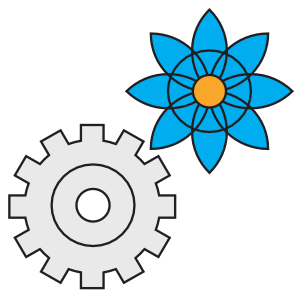Baukasten:English:25 Questions: Unterschied zwischen den Versionen
(→Current Version) |
|||
| Zeile 109: | Zeile 109: | ||
=== Current Version === | === Current Version === | ||
| − | Comment | + | Comment. |
= Literature references and sources. = | = Literature references and sources. = | ||
Version vom 7. August 2017, 12:15 Uhr
25 Questions of Max Frisch
The participants of the module approach the 25 questions of Max Frisch, by first, preparing their own individual questions. Subsequently, two participants exchange their questions, ask new questions, select particularly good questions, and begin to ask abstract questions. This continues in groups of 4, 8, or 16 participants until the entire group recombines. The aim is to create a condensed questionnaire collection that includes the group's essential and "good" questions. Afterwards, the questions of Max Frisch are distributed, read and discussed (also with regard to the questions of the group).
Preparation
Preparation for the moderators
At least two hours of preparation are needed.
Preparation for the participants
For this module, no prior knowledge is required . However, participants have to be ready to engage in asking and writing questions.
Material and space
(Colored) cards. A large space so that subgroups can work peacefully.
Schedule - 90 Minute version
Minute 00. - Welcome and announcements.
After a short greeting, the first task begins. A flowchart or a short outlook on the next steps is not necessary. All tasks are presented verbally - examples of the tasks are given in the appendix.
Minute 05. - Task #1: Come up with your individual questions.
At the beginning, the participants should write down as many questions as possible. The individual questions should be written preferably on card types / DIN A6 labels. There are no right or wrong questions and therefore, all questions should be kept. The participants will need some time to write down all the questions that go through their minds. If this module is integrated into future work, it is advisable to limit the possible question horizon by concentrating on a particular sub-area, eg technology and society, future, product life cycle. A quiet atmosphere would help the participants to come up with good questions. This first task offers the participants some meditation time as soon as they arrive to the seminar. However, this relaxation and reflection will be followed by a content-intensive work. The participants usually need 5-10 minutes for the individual work.
Minute 10. - Introduction and questions in pairs
Each two participants read, clarify and discuss their questions together. They could also come up with new questions.This exchange should take 5-10 minutes. During this process, the participants can also get to know each other. It would be more interesting for the participants to pair up with people that they don’t know very well . After a short presentation, an intensive exchange over the questions allows the participants to get to know each other from a different perspective.
Minute 15.- Questions in a group of four people.
In groups of four, participants read, clarify and discuss their questions. They can also come up with new questions. They should try to summarize similar questions. However, the goal here is not to reduce the number of questions, but to find questions on complex topics. This exchange should take about 10 minutes.
Minute 25. - Questions in a group of eight people.
The same work can now be done if two groups of four form a group of eight. According to the time limit and group size, groups of 16 people can also be formed afterwards. A larger group will require more attention in order to select the "best" questions. It would be helpful to classify the questions as long as no hierarchy is being constructed.
Minute 35. - Introducing questions in the entire group
Afterwards, all groups gather together and present their questions. However, a general discussion is saved for later - or perhaps during the break. If the time permits, every participant can choose their favorite question from the list and explain why they find it important.
Minute 55. - Questions from Max Frisch
After the groups have presented their questions to each other, the 25 questions posed by Max Frisch are now read. He posed these 25 questions at TU Berlin when he was awarded a honorary doctorate. But in general he asked 25 questions to different topics, eg property, marriage etc. It should be emphasized that it is not a matter of showing that Max Frisch has better questions, but that each question has its own value. If necessary, additional information on Max Frisch may be mentioned. For engineers, his book "Homo Faber" is particularly interesting.
Minute 65 - Participants reflect and present their favorite question
The participants will be given the opportunity to reflect briefly on the building block, and to present a personal "favorite question" from either Max Frisch or the group-developed questions.
Minute 85. Discussion.
In conclusion, it should be made clear again that the goal here is not to find an answer to the question, but to understand the importance of constantly asking questions.
Minute 90. End
Hints and Notes.
From the author:
Make sure that enough time is given to complete every task. At the beginning of the module, encourage the participants to simply write down questions by emphasizing that there is no right or wrong question. It should, perhaps, be clarified that it it’s not about finding a direct answer to the problem but instead rethinking the problem in general, by asking more questions. The module is very flexible in terms of time and method. It has also been used as an example building block for lectures on Blue Engineering. Here, the time is used to write down the questions followed by a group discussion where the participants can briefly present their favorite questions.The presentation of questions by Max Frisch can be reduced to introductory words and then the participants can read and comment on the 25 questions.
Abbreviated version.
Materials for implementation.
Version
Original Version
Comment.
Current Version
Comment.
Literature references and sources.
- Max Frisch: Fragebogen; Suhrkamp, 1998
In his diaries, there are a large number of questionnaires, each with 25 questions that focus on a subject such as property, love, death... All questionnaires from the diaries were summarized in the aforementioned book. However, the 25 questions to the TU Berlin are not included.
- Neil Postman: Teaching as a Subversive Technique; Delta, 1971
The school system in its current form is called into question. As a counter-project, a procedure is developed which deals more closely with the questions of the learner
- Gregory Stock: The Book of Questions; Workman Publishing, 1987
A compilation of several questions on different topics.
- Gregory Stock: The Book of Questions: Business, Politics and Ethics; Workman Publishing, 1991
A compilation of questions on the mentioned topics.

